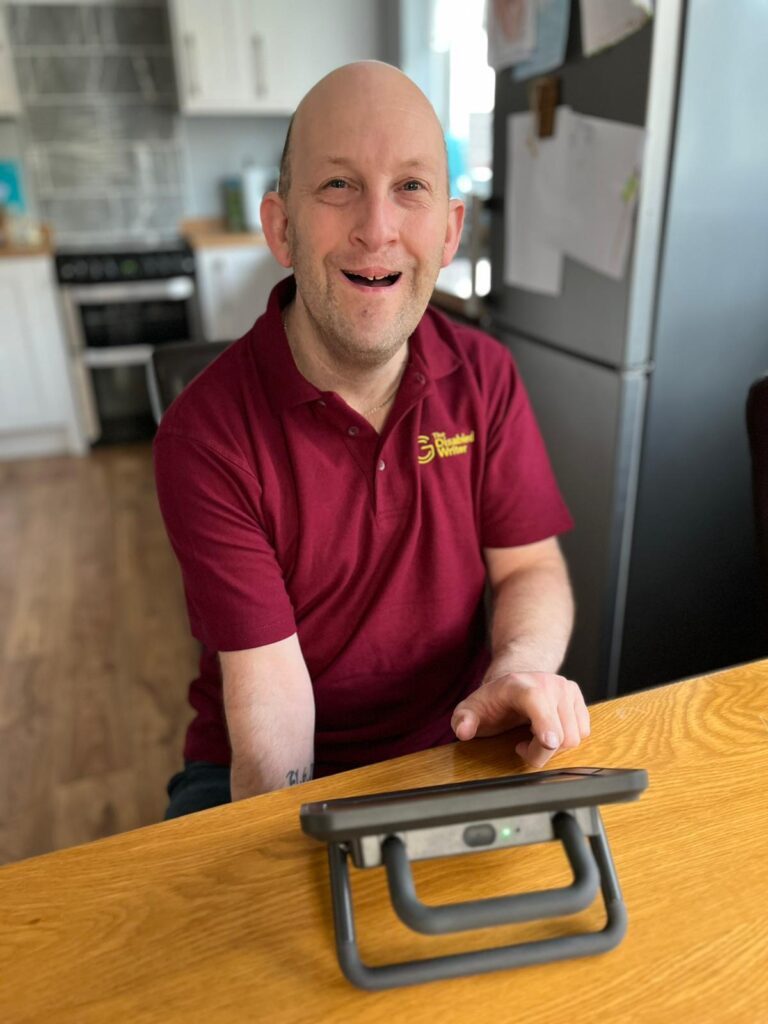July marks Disability Pride Month, a time that often doesn’t get the recognition it deserves. For many of us who live with disabilities, it’s more than a date in the calendar. It’s a powerful reminder that it’s okay to be different, accept yourself, and be accepting of others. It's a time when we can feel empowered and proud of who we are, knowing that our disabilities never define who we truly are.

I’ve lived with cerebral palsy and a severe speech impediment all my life. So when I talk about pride, I’m not talking about pretending it’s all easy. It’s not. There are days when disability feels like an uphill slog. But Disability Pride Month isn’t about glossing over the difficult bits.
Growing up, I didn’t see people like me on TV, in books or anywhere much at all. When disabled people were shown, it was usually in a way that perpetuated stereotypes or made you feel sorry for them. Or they were expected to be some sort of inspiration just for existing. Disability Pride Month challenges that. It says our lives aren’t just something for others to misconcept. It's a time when we can challenge these stereotypes and show that our lives are worth living.
Here’s why Disability Pride Month matters:
● Representation: It helps more people see disabled lives as ordinary, varied and valid. That visibility still makes a difference.
● Acceptance: It’s an opportunity to push back against underrepresentation. Too many of us have been made to feel like our disabilities are something to hide or apologise for.
● Community: Feeling connected to others who just get it, without having to explain everything, can be powerful.
● Action: Pride isn’t only about celebration, it’s also about demanding better access, inclusion, attitudes and opportunities. It's a time when we can come together as a community and commit to making these demands, knowing that our voices are powerful and can bring about change.
Disability pride is personal. It might involve speaking openly about your experiences, posting online, attending an event, or simply taking a moment to reflect on how far you’ve come. It’s
also about recognising that there’s no one way to be disabled, no single story that sums us all up.
For me, it’s in the little things: using my AAC or AI-Voice to share my voice, writing books with disabled characters, or having honest conversations that challenge assumptions. It’s choosing to stand up for inclusion, even when it would be easier to stay quiet.
If you’re wondering what you can do this month (or any time), here are a few simple things:
● Listen to the voices of people with disabilities and share their work.
● Challenge ableist language and attitudes when you hear them. This could be as simple as correcting someone who uses the term' wheelchair-bound' or questioning why a building doesn't have a ramp for wheelchair users.
● Make spaces and activities more accessible. This could mean ensuring there are ramps and elevators for wheelchair users, providing sign language interpreters at events, or using plain language and large print for written materials.
● Treat disabled people as equals, not as tick box projects or inspirations. This means valuing their contributions and experiences, rather than seeing them as a token representation of diversity or as a source of inspiration for non-disabled people.
Disability Pride Month is about respect. It’s about making room for all of us to show up as ourselves, without shame or apology. However you choose to mark it, remember this: it’s okay to be different, accept yourself, and accept others.